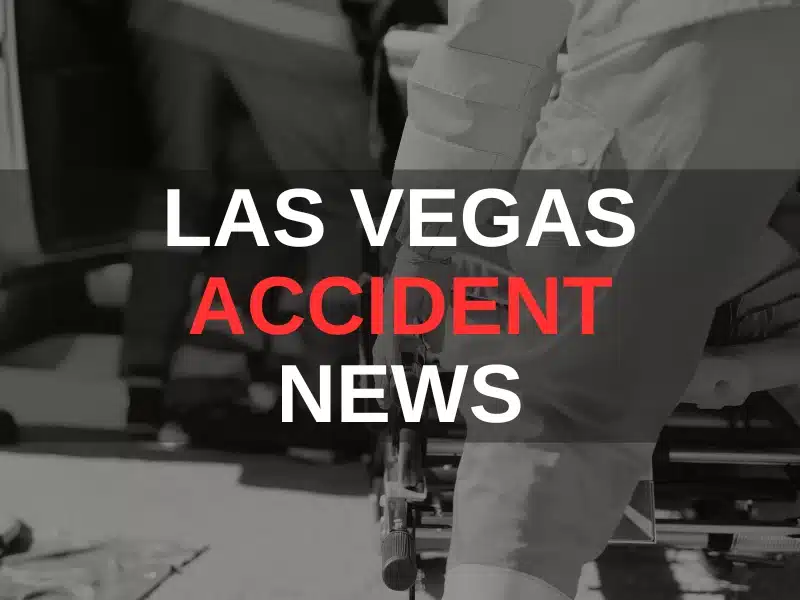Las Vegas, NV (June 2nd, 2025) – A worker at the Cowabunga Bay was recently hospitalized due to chemical exposure at the water park.
Chemical exposure can happen in an instant, or slowly over time. In both cases, the effects on your health can be serious. In Las Vegas, many workers assume that only industrial jobs involve chemical hazards. That’s not the case, however. Toxic exposure can happen in places you’d least expect, such as pools, hotels, restaurants, and office buildings.
Common Sources of Chemical Exposure in Nevada Workplaces
Chemical exposure isn’t limited to industrial plants. In Las Vegas, it affects workers across a wide range of industries, including those that might seem low-risk at first glance.
Public Pools and Water Parks
Pool technicians, maintenance staff, and seasonal employees at water parks are frequently exposed to high concentrations of chlorine, muriatic acid, and other pool treatment chemicals. These substances are used to maintain safe water quality but can be dangerous when inhaled or mixed incorrectly. Inadequate ventilation, accidental spills, or faulty mixing equipment can all turn routine pool maintenance into a serious health risk.
In the case of the worker who was injured at Cowabunga Bay, reports did not indicate how the chemical exposure occurred.
Construction
Construction sites in and around Las Vegas often involve demolition, painting, roofing, and concrete work. Workers can be exposed to asbestos, silica dust, formaldehyde, adhesives, and cleaning solvents. Without proper respiratory protection and ventilation, these substances can enter the body through inhalation or skin contact.
Manufacturing and Warehousing
Workers in manufacturing and storage facilities may handle acids, fuels, solvents, and degreasers. Even routine tasks, like cleaning or repairing machinery, can involve dangerous exposure. Spills, poor ventilation, and improper handling are common causes of injury in these environments.
Hospitality and Cleaning Services
Housekeepers, custodians, and maintenance staff in casinos, hotels, and resorts use potent cleaning agents every day. These may include ammonia, bleach, and disinfectants. When mixed improperly or handled without protection, these chemicals can burn skin, irritate lungs, and trigger serious reactions.
Landscaping and Pest Control
Pesticides, herbicides, and fertilizers are widely used by groundskeepers and pest control workers. Prolonged exposure can cause respiratory distress, neurological symptoms, or even cancer. Personal protective equipment is essential, but it’s not always provided or used consistently.
Casinos and Entertainment Venues
Large venues rely on behind-the-scenes workers to keep operations running smoothly. HVAC technicians, maintenance crews, and cleaning staff may be exposed to refrigerants, glues, lubricants, and chemical cleaners. Repeated exposure in confined spaces increases the risk of illness.
Symptoms and Long-Term Effects of Workplace Chemical Exposure
Exposure symptoms vary depending on the type of chemical, the route of exposure, and how long a worker has been exposed to toxic chemicals.
Short-Term Symptoms
Early signs of chemical exposure may include dizziness, nausea, headaches, coughing, skin rashes, or burning eyes. Acute exposure, such as inhaling concentrated fumes, can cause chemical burns, respiratory failure, or even unconsciousness.
Long-Term Health Effects
When exposure is prolonged or goes untreated, it can lead to lasting damage. Long-term effects include occupational asthma, chronic lung disease, reproductive issues, kidney and liver damage, nerve disorders, and even cancer. Workers may not link their illness to chemical exposure until symptoms become severe or persistent.
No updates have been provided on the condition of, or effects suffered by, the worker at Cowabunga Bay who was hospitalized after the Las Vegas swimming pool accident.
What Nevada Workers’ Compensation Covers for Chemical Exposure Injuries
Nevada workers’ compensation laws cover a wide range of injuries and illnesses, including those caused by chemical exposure on the job. The benefits you may receive if injured due to chemical exposure in the workplace include:
Medical Treatment
You’re entitled to medical care related to your workplace injury. Such coverage includes emergency treatment, hospitalization, specialist visits, diagnostic testing, medication, and follow-up care. Workers must use a physician authorized by the employer’s insurance carrier, but they may request a change after the initial consultation.
Lost Wages
If you’re unable to work because of your illness or injury, workers’ comp may provide temporary total disability (TTD) benefits. These payments replace a portion of your regular income until you’re cleared to return to work.
Permanent Impairment Compensation
When a chemical injury results in lasting damage, you may qualify for permanent partial disability (PPD) or permanent total disability (PTD) benefits. These are calculated based on a percentage of impairment and may be paid as a lump sum or in installments.
Vocational Rehabilitation
If you can’t return to your former job due to permanent limitations, you may be eligible for vocational rehabilitation. Vocational rehabilitation may include retraining, job placement services, or education programs to help you find suitable employment in another field.
Employer Responsibilities and Safety Violations
Under Nevada law, employers must take reasonable steps to protect workers from chemical exposure.
Safety Requirements
Employers should provide personal protective equipment (PPE) like gloves, goggles, and respirators when hazardous substances are in use. They must also train employees on proper handling procedures and ensure that chemicals are labeled correctly and stored safely. OSHA standards apply to nearly all workplaces and require ventilation systems, signage, spill cleanup protocols, and Material Safety Data Sheets (MSDS) for all substances.
When Safety Protocols Are Ignored
Failure to follow these guidelines can lead to serious injuries. An employer’s violation of OSHA standards doesn’t automatically entitle you to more compensation under workers’ comp. However, it may strengthen your case. In some situations, it can lead to civil penalties or additional benefits.
Third-Party Liability
Not all workplace exposure is the employer’s fault. If a third-party contractor caused the exposure, or if a product manufacturer failed to provide adequate warnings, you may be able to file a separate personal injury lawsuit. Third-party claims can help cover losses that workers’ comp doesn’t address, such as pain and suffering or full wage replacement.
Chemical Exposure Injuries Shouldn’t Be Taken Lightly
Chemical exposure is a real hazard across many Las Vegas workplaces, not just in factories or labs. Whether you work in construction, entertainment, or hospitality, exposure to cleaning agents, solvents, or fumes can lead to long-term health consequences.
If you’ve suffered an illness or injury due to chemical exposure on the job, speak with our workers’ compensation lawyers at George Bochanis Injury Law Offices. We have more than 30 years of experience helping Nevadans injured on-the-job to receive the benefits they deserve. With the right support, you may recover benefits, access the treatment you need, and protect your future. To discuss your options, contact us today at 702-388-2005 for a free consultation.




